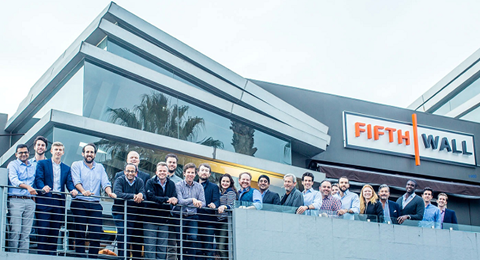New research by FTI Consulting, unveiled to a packed room at the recent FUTURE: PropTech conference, confirmed there is sizeable momentum behind the UK proptech sector.

Of the 202 respondents who took part in the research, 95% said they felt positive about the outlook for the sector in the next 12 months, with 64% going as far as predicting boom times ahead.
Perhaps, then, it is no surprise the research should coincide with the announcement of a new, dedicated proptech investment fund worth $212m (£164m) called Fifth Wall.
It has the backing of large property firms including CBRE, Hines and Prologis. Clearly the industry’s heavy hitters have decided they want to use technology as a serious source of competitive advantage.
But we should pay equal attention to the research findings that point to some hurdles ahead. Nearly three-quarters of respondents acknowledge a lack of understanding about the benefits of proptech and nearly half think that property companies are unsure of the return on investment.

This lack of understanding puts the onus on all of us who are involved in the sector to be clear on the value it provides.
It is hardly surprising that one of the most active segments of proptech is the industry’s software and big data providers, leading to a phenomenon known as the ‘capitalisation of data’.
Data is only as powerful as the skill of the people managing it
At VTS, we help commercial property owners, managers and agents pool all their information into a single operating platform, creating a data bank that can be mined and analysed according to the company’s most pressing needs. And we spend a lot of time articulating the benefits and value of doing so, all focused on driving revenue, increasing efficiencies and mitigating risk within an asset or across a portfolio.
A property company storing data all in one place can create instant access and visibility into key portfolio metrics concerning demand, leasing activity, occupancy, in-place tenants, current lease terms and more.
Capitalising on data banks
This portfolio-wide view allows users to spot trends and make sure their business is positioning its assets to best capitalise on real-time market conditions, as well as to better retain and grow tenants.
Consider this: by understanding what industries a landlord’s demand is coming from and the types of spaces prospective tenants require (from a square foot perspective), it is possible to allocate sales and marketing spend more appropriately or invest in assets to better position them to attract this audience. All of this provides a measurable return on investment.
We are now beginning to see some of the most innovative owners and agents capitalise on their data banks by working with several proptech ideas. For example, one landlord is analysing the relationship between capital expenditure, revenue income and footfall to help them derive the maximum amount of value from their properties. This essentially reduces the risk associated with decision-making and provides valuable proof points for getting things done.

Like anything in life, the more time and resource people invest, the greater the rewards. Proptech is no different. The quality of a firm’s data is only as powerful as the skill of the people who manage it. This is why firms such as CBRE, Knight Frank and Hines are all making strategic hires in the tech and innovation space.
With tech expertise now being recruited by major property firms, it is easy to see why the consensus is that it is only a matter of time before proptech becomes commonplace in the industry.






























No comments yet